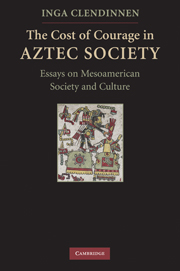3 - Disciplining the Indians
Franciscan Ideology and Missionary Violence in Sixteenth-Century Yucatán
Published online by Cambridge University Press: 05 August 2012
Summary
Some years ago t. o. beidelman wrote an article which, judging from the flurry of responses it provoked, touched a nerve. Noting that social anthropologists had for too long neglected the study of colonial groups, Beidelman asked that missionaries and mission stations be investigated; that we should break out of our traditional fixation with the “native” side of the equation to recognize our fellow Europeans as fit subjects for “wonder and analysis”.
It is true that ethno-historians, while ready enough to exploit missionary writings, have given scant attention to the missionaries themselves, tending to dismiss them as interfering outsiders who came, saw little, and (whether they managed to convert anyone or not) irretrievably changed the societies they intruded upon. While we have perhaps suspected that solitary missionaries dumped down among barbarous tribes might well have had difficulty in sustaining their sense of self and their sense of purpose unimpaired, organized groups of missionaries – most especially those whose group organization long preceded the mission enterprise, as with members of Catholic orders – are typically seen as effectively insulated from their alien environment. We assume disquiets and cognitive quivers to be evoked in the native communities by the mere missionary presence; the missionaries themselves we treat as men rendered impervious by ideological armouring.
In what follows, I want to present as “subjects for wonder and analysis” a particular group of Franciscan missionary friars who worked among the Maya Indians of the Yucatán peninsula in the middle decades of the sixteenth century.
- Type
- Chapter
- Information
- The Cost of Courage in Aztec SocietyEssays on Mesoamerican Society and Culture, pp. 91 - 115Publisher: Cambridge University PressPrint publication year: 2010



